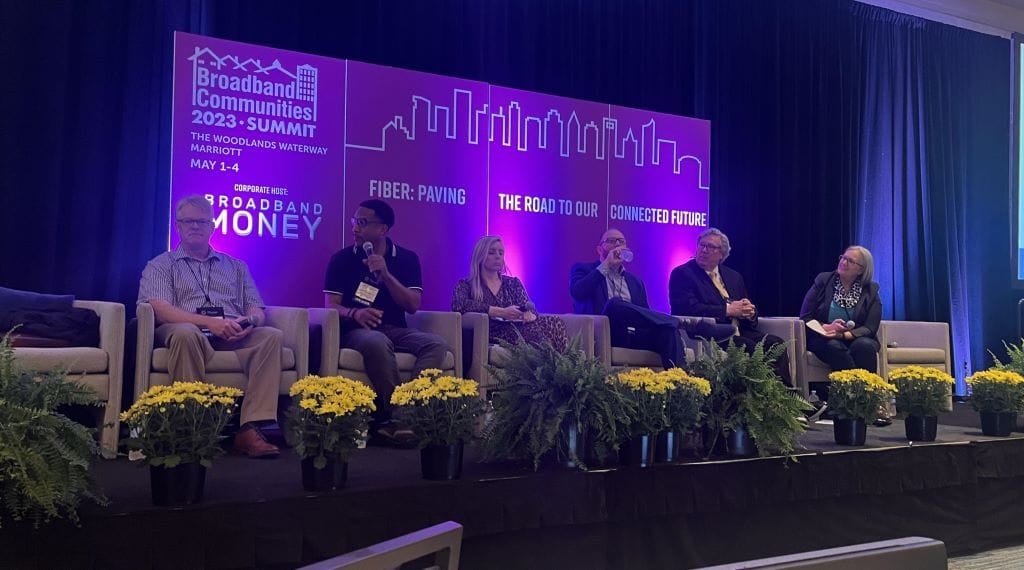Cities are Adopting Open-Access Models, Say ISPs and Others at Broadband Communities
Cities are being drawn to open-access deployment models, say panelists.

HOUSTON, May 2, 2023 – Open-access private public partnership models are becoming more desirable for cities looking to deploy broadband, said panelists at a Broadband Communities event Monday.
An open-access model, sometimes dubbed the “wholesale model,” is characterized by two separate entities owning and operating the infrastructure. It allows several different service providers to compete on the same infrastructure and seeks to lower costs for the end user.
The “pre-conference” event was organized was organized by the Coalition for Local Internet Choice, the American Association of Public Broadband and Broadband Breakfast.
Cities seeking to capitalize on federal funding and improve its broadband connection hope to mitigate partnership risks but also must consider the feasibility of owning broadband infrastructure, said Sean Gonsalves, senior researcher for the Institute for Local Self-Reliance.
Communities are clamoring for a workable model and in a private-sector-led effort, while there is no one-size-fits-all solution, there is a strong desire that the community has considerable say in important issues, Gonsalves continued.
As such, many states are encouraging the implementation of PPP’s rather than municipal builds to balance the municipality’s capacity of infrastructure control and broadband’s promised return on investment, said Gonsalves.
An open-access model also addresses the question of whether governments should be involved in the kind of service provided by internet service providers, added Mitchell Shook, CEO of ISP Advanced Stream Broadband. Service providers can enter homes and provide direct service whereas governments may not have the capability to maintain such service, he said.
Broadband continues to increase in importance for city governments, said Roger Timmerman, CEO of UTOPIA Fiber. UTOPIA is built on an open-access model in which it owns an expansive fiber network which is then leased to ISPs that take service to the end user.
From a city perspective, the city itself is the most critical anchor for a fiber network as the network supports critical public safety and service systems, continued Timmerman. These systems include wildfire and vandalism surveillance which are already being deployed in some cities, according to the fiber company.
“If a city has fiber infrastructure, they are in position to support smart city applications on demand,” Timmerman said, claiming that in a few years, these applications may be nearly as important as residential uses.
Not all industry leaders agree with this assessment, however. In a Broadband Breakfast Live Online event in December of 2021, Jim Baller, partner at law firm Keller and Heckman, rose concerns that such a model forces providers to engage in a price war that will ultimately limit – and potentially erase – profitability for all players involved. Baller is also president of CLIC.










